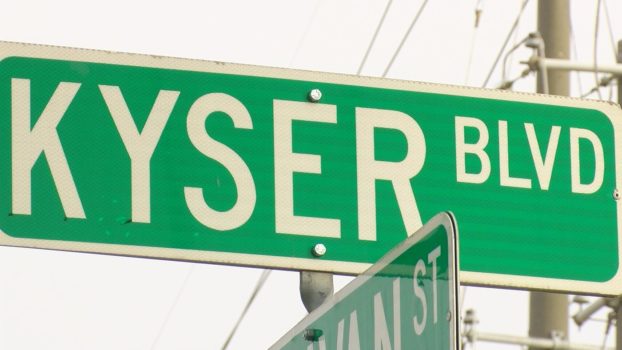OPINION: The Kyser Proposal: Things that make you go hmmmm
Editor’s note: The views and opinions expressed in a letter to the editor are those of the author and do not reflect the official policy or position of The Madison Record.
By Michael Sheehy, Submitted
At the upcoming Sept. 23 Council meeting, our city leaders will consider a request to rezone property off of Kyser Boulevard from industrial to residential. The proposal would permit a developer to construct several hundred houses in an area currently zoned for commercial or industrial use.
What makes this unusual? Our city planning committee voted against the Kyser proposal. Airport officials have expressed concern. School leaders have expressed concern. And volumes of Madison citizens have protested against it.
Moreover, the proposal conflicts with our city’s Growth Policy for Residential Development. It also conflicts with the city’s Industrial Area Plan, which the city commissioned to identify how Madison can build business opportunities in this industry rich region.
Business Considerations
The Industrial Area Plan (guided by a cross section of community members as well as our Madison Growth Plan, Comprehensive Plan, and several other plans and studies) observes that our city’s industrial areas are critical components of Madison’s future. It concludes that the industrial area affected by the Kyser proposal has the most development and infrastructure potential of all city zones studied. While the plan lists dozens of strengths, weaknesses, and opportunities, it only identifies three threats, one of which is the “rezoning of industrial land to other uses, such as residential.”
Financial Considerations
The annual tax revenue the Kyser proposal would generate is less even than the reported cost to the city of commissioning the Industrial Area Plan.
The estimated $75,000 in Kyser revenue will not offset the $270,000 required for every new batch of students the development will bring in in each successive year. This is cumulative. By the time the development is complete, we’ll have spent over $5.6 million in costs for new Kyser students, and each year we’ll continue to pay over $1.6 million in student sustainment costs. We will also need $300,000 to pay for the additional buses that will be required for 171 children as well as $93,000 annually to pay for drivers.
The original Kyser developer agreement suggested that the city would reap a financial dividend of perhaps $600,000 in cost avoidance for new road and greenway extensions, yet it called for the city to itself fund a portion of the extensions. Any potential cost benefit from Kyser will likely be dwarfed by the greater and enduring financial impact to our community.
School Considerations
We just got past the property tax vote to fund new schools. Don’t we have enough money and space now? Unfortunately, no!
The Kyser proposal is additive to our school capacity and funding projections, and it would add an estimated 7 classrooms, with an estimated 28 students per year and over 170 by completion.
The property tax (presuming it’s been approved) will fund the two elementary/middle schools we need immediately plus potentially some additions at the high schools. If construction goes flawlessly to schedule, we will experience school capacity relief in 2022. However, by 2029 we will again exceed the capacity of our elementary schools and directly thereafter the high schools and middle schools.
This property tax measure became a last minute Hail Mary because growth outpaced resourcing. The tax increase is an undeniable necessity. But we need to continue managing residential growth until we can develop future funding strategies.
Resident Wellbeing Considerations
The proposed Kyser development lies in a flight path directly north of the airport, and airport authorities have advised that the property is in a proximity that violates Federal Aviation Administration (FAA) acoustics standards for residential zones.
The FAA encourages “compatible use” industrial and commercial zones around airports and urges local officials to keep “incompatible use” residences, schools, and churches away from airports…”paying particular attention to noise impact mitigation”.
The Kyser proposal offers an extension to Westchester Drive. Interestingly, Westchester is the name of a lesson we can learn from. The Westchester community of Los Angeles was compelled to condemn 4,500 homes and displace 14,000 residents as airport growth created excessive noise pollution. That was a cost that the city had to pay.
The Huntsville airport is currently only using about 30% of its existing and planned capacity.
Last September, Senator Shelby announced that our airport would receive a $29.1 million grant to build a new taxiway and accommodate more direct flights into the area. Coincidentally, the FAA that oversees that grant distribution program. As a condition of an FAA-funded airport development project, the Federal Airport and Airway Development Act requires written assurance that zoning laws will, to the extent reasonable, restrict land use to purposes “compatible” with normal airport operations, including landing and takeoff of aircraft.
Good conscience would label it a risk to permit the construction, purchase, and habitation by Madison families of homes in a flight path zone that fails FAA acoustics standards.
Growth Policy Considerations
Last year, city leadership, with enormous deliberation, care, and purposefulness instituted a growth policy for residential development. The policy states that rezoning industrial property to residential should not be supported.
The policy does allow for an exception…contingent upon achievement of significant city objectives. Presumably, any advantages presented by the proposal would necessarily outweigh the disadvantages.
The Kyser proposal is outside of the growth policy framework. In the past nine months of public discussion, nobody has offered a plainly compelling interest to the city that would justify an exception. Cost savings the development would offer the city are offset by the greater financial obligations the city would incur. Residential taxes will generate less city revenue than businesses would.
Most if not all development proposals will offer a degree of expected tax revenue and perhaps some modest cost offset. Will that be our benchmark for approving exceptions? If so, what value our policy?
Our city is growing and must do so smartly. Growth is good…if it is managed. Our growth policy is our management framework. The Kyser proposal shows how a discretionary application of policy does not work.
Outlook
Although it did not pass commission vote, the Kyser proposal has been resurrected by means of a development agreement that has been largely secretive.
This discussion isn’t just about the Kyser proposal, but it starts with Kyser. Any industrial rezoning to residential would have similar impacts, though Kyser presents the additional safety considerations of the airport flight path.
Our growth policy is our commitment to safeguard the future of our community. Our Industrial Area Plan is our strategy to resource the future of our community. They represent the greater good of Madison.
Exceptions should be the exception.
The city has pressed forward on the Kyser proposal despite its conflict with our policies and plans and in the face of near universal opposition from school officials, airport officials, and Madison citizenship. Things that make you go hmmmm.







